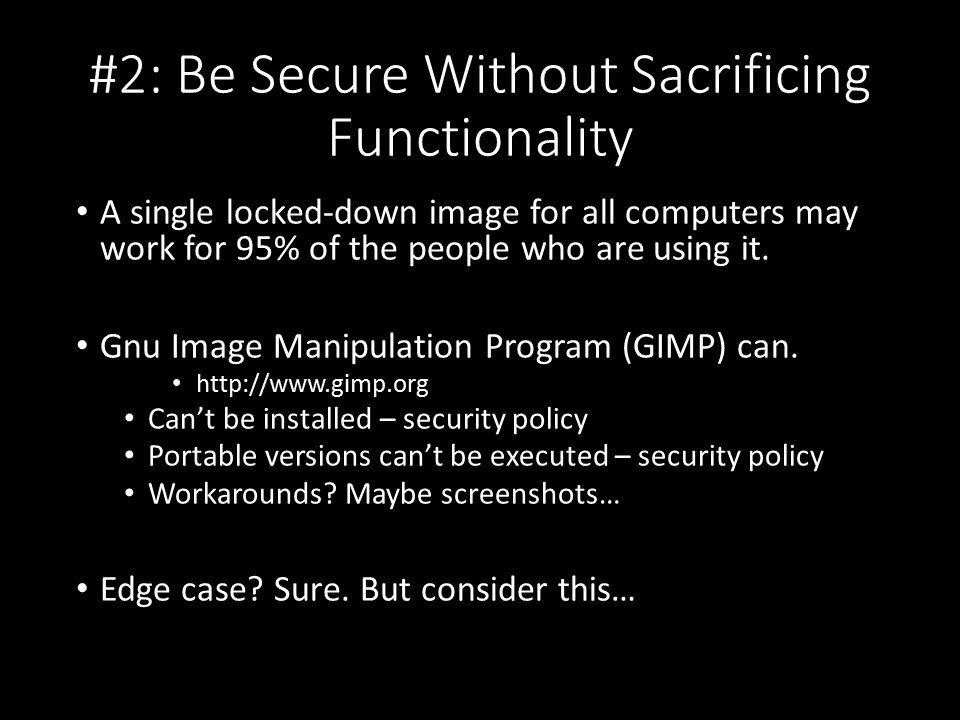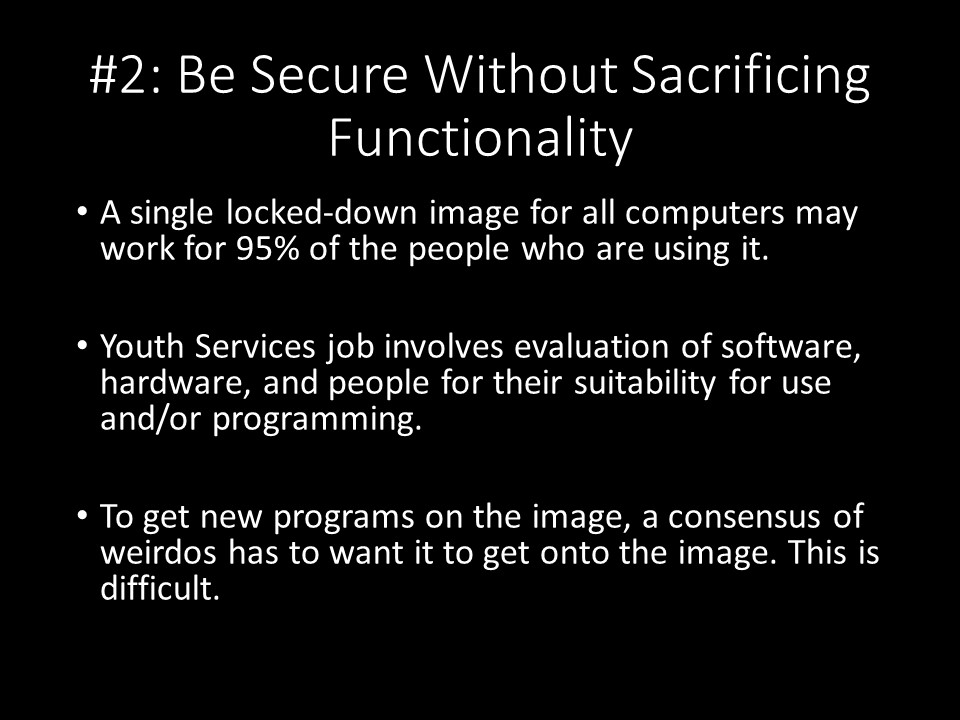
The GNU Image Manipulation Program (GIMP) can. But the sensible security policy says that you can't install programs on the hard drive that aren't already there. No problem, right? All you have to do is grab a spare flash drive and then use the Portable Apps version of GIMP. No installation, no problem, right? Not so much. That other part of the policy that says you can't run any programs on work machines stops the portable versions from running, too. Since it's unlikely that anyone in Communications is ever going to develop a static image version of the fliers, this means the solutions that are likely are things like taking a screenshot with the file open and saving that in the image manipulation program to create the image needed for the slide show. Which is clunky, and only works to a maximum monitor resolution. But how many people outside of the Communications Department need to do anything with PDF manipulation or creation of promotional material, anyway? It's clearly just edge cases that would need such a thing.

Not to mention that a large part of librarianship work, for both kids and adults, is making decisions about programs and evaluating tools that might help in their owrk or their programming. With a security policy like this in place, nobody will be able to test whatever the successor to Minecraft is on work computers and work time, because they won't be able to install it. Nobody could make decisions about whether to offer programs that could teach Twine for building stories and fictions, or software mentioned in Thursday Bram's Open Source Writing Stack talk from OSB 2015 - Markdown, Scribus, or other programs and programming environments without first getting it cleared through IT and then having it installed on multiple machines from the single image. This resticts the likelihood of software usage only to those things that you can build a consensus of need for. Being an edge case generally means your needs are overlapping, but different than anyone else's.